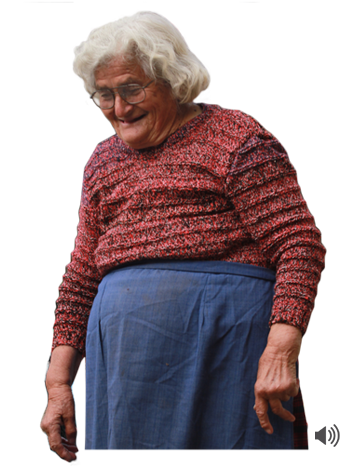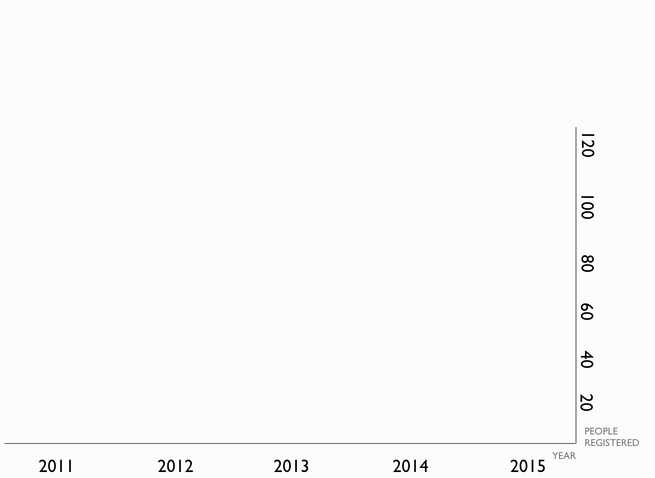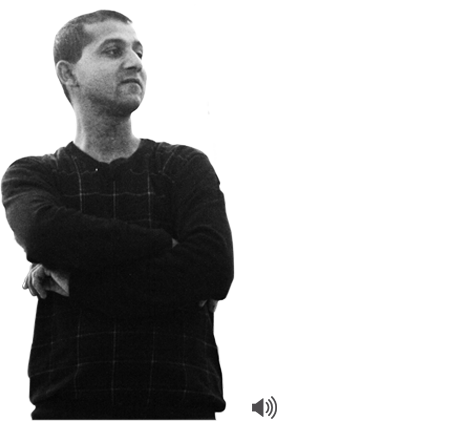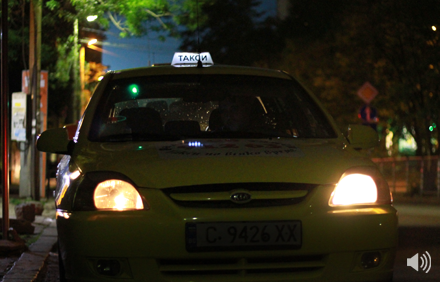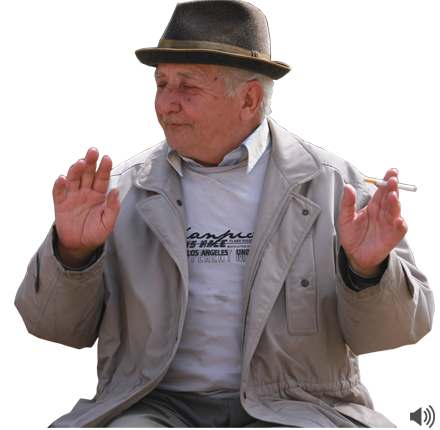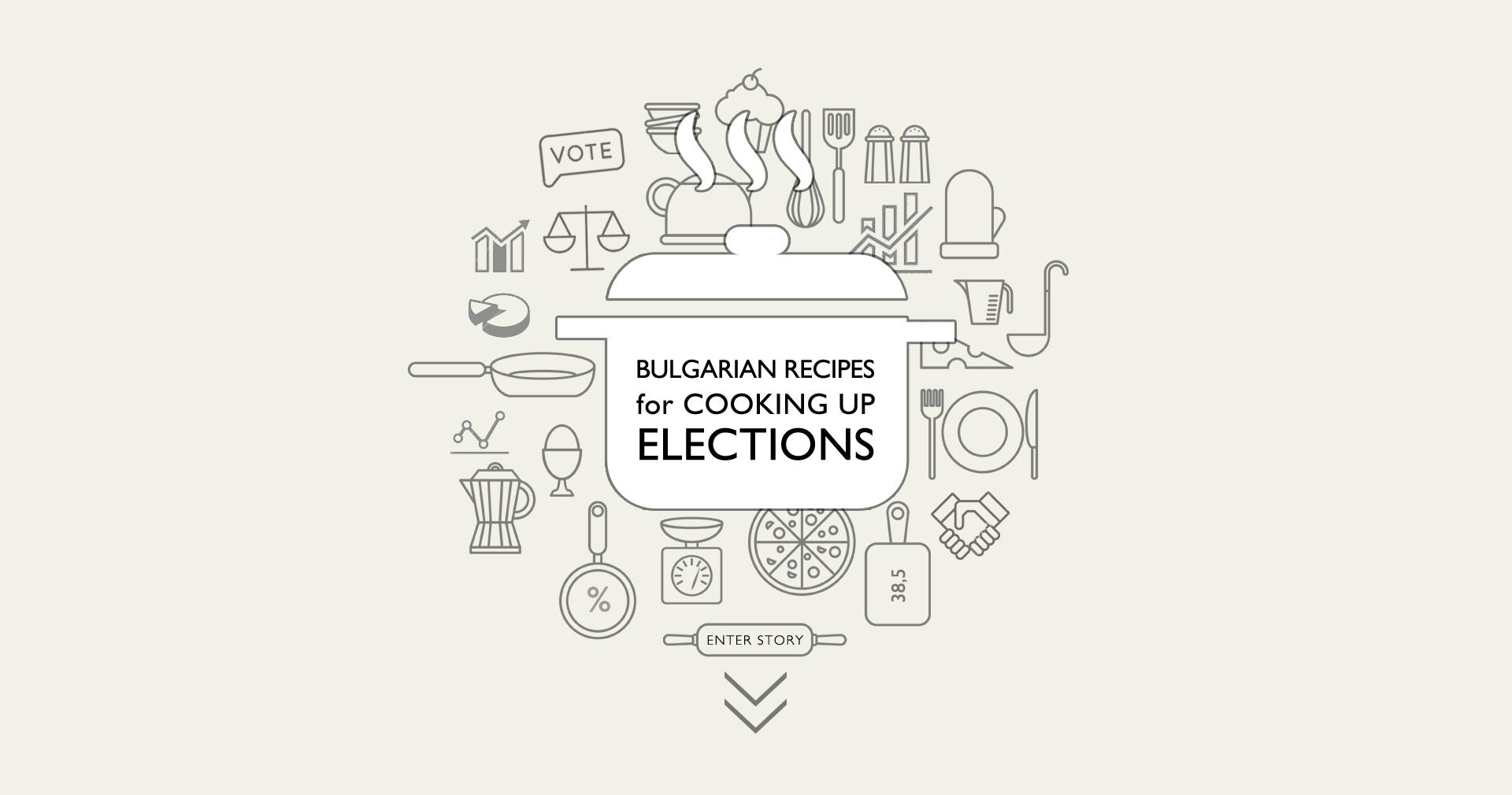
|
"He who controls the spice, controls the Universe." Or in the Bulgarian case, he who controls the elections, controls the financial windfall from all government contracts and European operating programs - by far the biggest share of Bulgarian GDP. Over a number of data-driven projects, the Institute for Public Environment Development has explored election irregularities and their connections to questionable economic benefit.
This story presents five mechanisms of electoral malfeasance in five different spots, through the Institute's data projects and the testimony of regular people. All with a tasty twist.  |

The rare lucky tourist venturing out to the small towns of Bulgaria, can look forward to the treat that is the Balkantourist Breakfast - a quaint socialist-era throwback. So good that it hasn't changed in 50 years, it features grated cheap feta with cucumber and tomato, mystery minced meat shaped into a kebapche, and lukanka - the inevitable spicy salami delicacy. Usually eaten in the solitude of empty restaurants of unspectacular small towns like Lesichovo. Yet once every four years these quiet places seem to turn into major tourist destinations. On election year.
Six months before local elections comes an important watershed. Voting is allowed only in the municipality of resident registration as of this date. It is this rule that appears to spark a nationwide address-change wave, once every four years. The effect of this "tourism" on the results in small municipalities is disproportionate and casts a strong suspicion on the motives of the "tour operators".
| ||
| ||
|

|
The Institute devised a local election risk index, connecting high levels of election tourism to high per capita municipal expenditure. Places scoring high on the index often feature expensive vanity projects, such as sports stadiums and facilities in small villages. Lesichovo also has a new stadium, even though the local school had to close due to lack of students.
|
#13 of 265 - Lesichovo's risk index ranking among all Bulgarian municipalities
37,794 is the nationwide difference in address registration changes between the 4 months of 2015 before the cutoff date and the same period in 2014. That represents 1.15% of all who have voted.
|
We leave Lesichovo, its lovely stadium and its freshly re-elected mayor, having avoided a run-off by a mere 43 votes - a fraction of the additional 200 people, registered into the municipality in the weeks before the cut-off date. We head East on Bulgaria's oldest highway on a journey closer to the Orient.

A dot on the vast plain of Thrace, Kalekovets is not much more than a dusty village on the side of a busy road. But on a map of the 2014 European Parliament elections, it looms large. It is home to a very special electoral section - one that in less than a year went from staging a competitive race between four parties to being completely dominated by a single one - a party that took less than 3% in 2013. Such sudden shift can be seen during the making of one local dessert - the turning of rice milk-pudding (sütlaç) into burned mush the moment you look away from the stove.
| |||||
| |||||
|

|
#85 of 265 - Risk index rank of the municipality. An important predictor of places the MRF has been looking to take over, is poverty. While this municipality is relatively low on the risk ranking, that is mainly due to its meager per capita expenditure. And the Kalekovets sütlaç section is in the poorest neighborhood of the village. No fancy new stadium here, but the local kids will still find a way to build a basket and get a ballgame going.
|
67% - Share of MRF votes coming from sections where the party has results better than 50%.
2.2% - Share of Turkish ethnic minority in the village of Kalekovets.
|
In Bulgaria the MRF epitomizes the connection between elections and economic success on the back of government-awarded contracts. With a captive electorate of ethnic Turks, the party's political brokering and king-making has steadily increased the wealth and influence of its leaders, despite historically struggling to break the 10% electoral barrier. In a bid to monetize its economic influence on the political front, the MRF is trying to expand from its base into new, impoverished, controllable areas. Areas not at all unlike a decaying mining town alongside the mighty Pirin.

N estled in a beautiful mountain, the dying industrial hub of Bobov Dol is home to 2021 workers at a coal mine - the only trade in town. Completely dependent for their livelihood on the mine's owner, on election day their vote hardly seems to belong to their conscience. Instead, the results obey the political wishes of the master. They flip - like a pancake.
| ||
| ||
|

|
47% Lider's share of sections won by parties failing to make it into Parliament in 2013. In these elections, of 45 participating parties, 4 made the 4% cutoff to enter Parliament. Of the rest, only 13 were able to win a section. Lider was the undisputed leader among them, putting 56 - nearly half of them - in its column. Overall, the party won the 4th most sections, yet a mere 1.736% of national vote (10th overall).
|
89% of voters casting ballots at the 2015 local elections in Bobov Dol, also answered a referendum question on electronic voting. Since e-voting is essentially technology that can limit some forms of electoral fraud, the high participation can be taken as a positive sign, as perhaps the voters are looking for ways out of the status quo. Overwhelmingly, Bulgarian voters said YES to e-voting by a 2 to 1 margin. In Bobov Dol, however, the NO-vote attracted nearly 10 percentage points more than the national average.
|
Leaving the realm of impoverished small towns and villages in the grip of corporate politics of the literal kind, we flip the palachinka and head North to a very different type of place - a large regional center - to celebrate the biggest holiday of the Orthodox world.

Legend has it that 120 years ago Montana took the all important step from village to town with a sleight of hand and some shameless flattery. While Bulgaria's newly chosen king Ferdinand was stopped on his way from Germany to capital Sofia, the local elders conspired to get him drunk and in the midst of the festivities offered to name the village after him in exchange for town status. The merry king heeded their request and the town of Ferdinand grew to great regional importance.
Despite several further name changes, it would appear that to this day, Montana lives up to its generous reputation as it comes to newly risen politicians. When media personality Nikolay Barekov stormed the 2014 European Parliament elections with outrageous behavior and wild populist claims, the town led the way in offering cash contributions to his campaign that surpassed all previous donation records. Funnily, it all happened on a single day: Easter Sunday - the day of a tasty, plump and sugar-coated pastry - the Easter Kozunak.
| ||||
| ||||
|

|
22.6% - share of individual donations (by count) for the "Bulgaria Without Censorship" party, gifted on Easter day, 2014.
|
311 lv (155 Euro) is the average donation amount in Montana, while the average pension is only 288 lv (145 Euro).
|
We pick up speed as we head East again, closer to the blue Danube. There on some of the richest agricultural soil in Europe, in its economically poorest region, a most surprising find awaits.
Still holding a 30-year-old women's 100-meter hurdles world record, Bulgaria used to be a proud sporting nation. Most of the glory is now faded, but in the small municipality of Gulyantsi, a community of mostly aging pensioners is keeping the dream alive. Their track event - the 4-ballot voting dash. During the 2011 presidential and municipal combined election, voting was so complicated that the voting day was extended by an hour nationwide. Huge lines formed. Thousands waited for hours to cast their ballots. But not in Gulyantsi. Here hundreds of people clocked an astonishing 22 second voting average - a full 30 seconds better than the achievement of an athletic young man given two attempts under ideal simulated conditions. Their reward - glory and a melted cheese sandwich - the only à la minute that would fit their speed.
-
9,58s
Usain Bolt runs 100m
-
19,19s
Usain Bolt runs 200m.
-
22s
The fastest voter in Bulgaria votes.
-
30s
You blink 6 times.
-
150s
Average voting time in Bulgaria.
| ||
| ||
|

|
18,677 is the cost of the stadium in security guard monthly salaries. The guard at the Gulyantsi stadium was a bit luckier. When his shift-partner walked off the job for delays in getting paid, our man stuck around and started receiving double wage for guarding the expensive facility all alone. His main job - to keep the few curious kids away. For now the brand new stadium is staying closed - apparently for "renovation"
|
7,177 people voted in Gulyantsi at the 2015 local election.
3 is the number of consecutive terms for the municipal Mayor.
|
Gulyantsi sits in the middle of Bulgaria's wheat belt, where the perfect mix of good rich soil and temperate climate meets the many tributaries of the mighty Danube. But local people don't earn their daily bread with agriculture any more. And not because the land is abandoned. The vast crop-fields in the municipality are perfectly groomed, huge modern tractors perched on top. Yet there are no jobs available for the residents of the small municipality. The reason why, is that the staple crop of these huge grain farms is not any grain culture. It is European agricultural subsidy. Similar to the one that bought the town its brand new stadium. Meanwhile, without jobs and meaningful economic development, this already poorest region in the EU is only getting poorer as young people are leaving in droves. But don't let that rain on the re-elected Mayor's parade - he has just been given a state award for utilizing - yes, European subsidies.

OutroThe overall portrait painted by the data is damning. While OSCE regularly publish tame sign-off reports about election day observations, the mechanisms for controlling electoral outcomes go deeper than simple ballot stuffing. They are inextricably connected to the structure and the management of local economies. Electoral reform, such as e-voting and preferential balloting, which allows voters to re-arrange party lists, is an important item, but ultimately the only way to get out of the vicious circle would be to break the unseemly connection between politics, business and European subsidies.
We view the Institute's data projects as more than simply a way to diagnose a problem. Ideally they would pose deeper questions that can empower policy-makers and the general public to search for workable solutions. From curbing registration tourism, to addressing the misguided European subsidies and their stifling effect on small local business and agriculture, good data and good questions are the key to developing results-oriented policy that works. Good food doesn't hurt, either.
|

